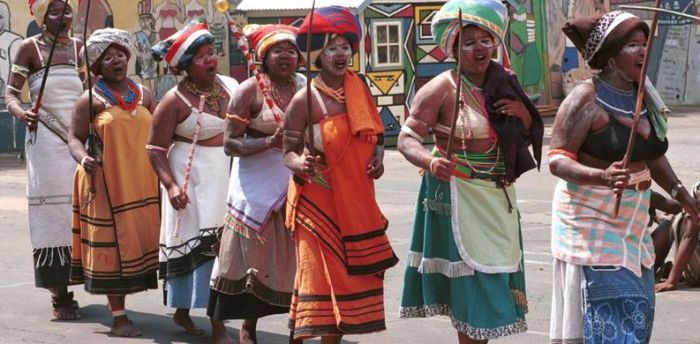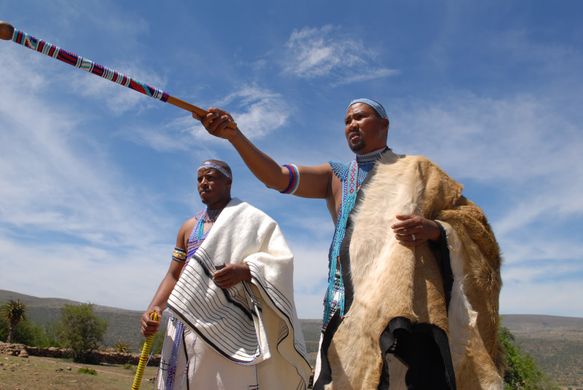Verbs
- -bamba: catch, hold
- -bhala: write
- -bona: see
- -cela: ask politely for something/request
- -cima: switch off
- -cula: sing
- -enza: do/make
- –funda: study
- –fundisa: teach
- -gcina: keep
- -hamba: leave
- -hlala: live/sit
- -jonga: look at
- -lala: sleep
- -mamela: listen
- -ngena: come in
- -nika: give
- -phuma: go out
- -qonda: understand
- -sela: drink
- –thanda: love/like
- -thatha: take
- -thetha: talk/speak
- -tya: eat
- -vala: close
- vela: come from
- -vula: open
- -xelela: tell [someone]
- -ya: go (to a place)
- -zalisa: fill in
- –akha: build
- –azi: know
- –bhatala: pay for
- –bulisa: greet
- –buya: return
- –dlala: play
- -fika: arrive
- –funa: need/want
- –funda: study
- –fundisa: teach
- –goduka: go home
- –gula: be sick
- –hla*: go down
- –oyika: be afraid of/fear
- –phangela: be employed
- –phila: be alive
- –qhuba: drive
- –sebenza: work
- -sela: drink
- –shiya: leave (something)
- –thanda: like/love
- –va*: hear/understand
- –vuka: wake up
- –za*: come
- –zama: try
- –bonisa: show
- –bukela: watch
- –cinga: think
- –fumana: get/find
- –galela: pour/add
- –gqiba: finish
- –hlamba: wash
- –hleka: laugh
- –lila: cry
- –lungisa: fix
- –ma*: stand, stop (NB: -mile = standing)
- –mamela: listen
- –netha: rain
- –nxiba: get dressed
- –phela: come to an end
- –phinda: repeat
- –sa: take someone/something to a place
- –thenga: buy
- –thengisa: sell
- –tshatile: be married [no –ya- used: eg. Nditshatile – I am married / Anditshatanga – I am not married.]
- –vuya: be happy
- –wina: win
- –ba*: steal
- –hla*: go down
- –mka*: depart
- -ba: be/become (see that BA also means “steal”). Ndifuna ukuba I want to be a teacher.
- -buyisa: return something (see BUYA return)
- -cheba: cut something growing
- -coca: clean
- -dada: swim
- -fana: be similar/resemble
- -khaba: kick
- -khumbuza: remind
- -ncamisa: kiss
- -netha: rain (eg. Kuyanetha. It is raining)
- -ngcolisa: make dirty
- -ngxola: make a noise
- -nxila: get drunk (-nxilile = be drunk)
- -onqena: be lazy
- -phuza: kiss
- -shukumisa: move (something), shake
- -sika: cut
- -sula: wipe
- -tshintsha: change
- -tyisa: feed (from TYA)
- -vuma: agree
- -wa: fall down
- -wisa: drop something/someone
- -xoka: lie
- -yeka: stop doing something
- –ba: steal (latent “i” verb)
- -beka: place/put on
- –faka: put in
- –libala: forget
- –khumbula: remember/miss
- –khupha: take out
- –ngenisa: put in
- –sebenzisa: use
- –phendula: answer
- –buza: ask
- –pha: give (see also NIKA)
- –qala: start
- –hleba: gossip
- –betha: hit
- –aphula: break (transitive – takes an object; also sometimes -ophula)
- –aphuka: become broken (intransitive –aphukile = broken;also sometimes –phukile or –ophukile, eg. Ikhomputha yam yophukile/yaphukile/iphukile. My computer is broken.)
* latent “I” (A allergic verbs)
Nouns

- umntu/abantu: person/people
- umfundi/abafundi: student/s
- umzali/abazali: parent/s
- umhlobo/abahlobo: friend/s
- utitshala/ootitshala: teacher/s
- umntwana/abantwana: child/ren
- amanzi: water
- isikolo/izikolo: school/s
- isiXhosa: Xhosa
- ukutya: food/to eat
- into/izinto: things
- ubani/oobani: who?
- umqhubi/abaqhubi : driver/s
- umfundisi/abefundisi: priest/s
- itshomi/iitshomi: friend [slang]
- intombi/iintombi: girl/s
- inkwenkwe/amakhwenkwe: boy/s
- isityalo/izityalo: plant/s
- inja/izinja: dog/s
- indlu/izindlu: house/s
- indlela/iindlela: road/s/way/s
- umlambo/imilambo: river/s
- ilokishi/iilokishi: township/s
- ikhaya/amakhaya: home/s [Classes 5/6]
- isiteyidiyum/iziteyidiyum (class 7/8): stadium/s
- ibhiye/iibhiye (class 9/10): beer/s
- isoka (class 9): soccer
- ivenkile/iivenkile (class 9/10): shop/s
- intaba/iintaba: mountain/s
- imali (class 9): money
- ingozi/iingozi (class 9/10): accident/danger/s
- itoyilethi/iitoyilethi (class 9/10): toilet/s
- indoda/amadoda (class 9/6): man/men
- igrosari (class 9): groceries
- imali (class 9): money
- umfazi/abafazi (class 1/class 2): woman/women
- umpheki/abapheki (class 1/class 2): cook/s
- umyeni/abayeni (class 1/class 2): husband/s
- imoto/iimoto (class 9/10): car/s
- umbane (class 3): electricity
- intloko (Class 9/10): head
- iliso/amehlo (5/6): eye/s
- umlomo (3/4): mouth
- impumlo (9/10): nose
- indlebe (9/10): ear
- intamo (9/10): neck
- isisu (7/8): stomach
- ibele (5/6): breast
- umlenze (3/4): leg
- unyawo/iinyawo: (11/10) foot
- ingalo (9/10): arm
- isandla (7/8): hand
- iinwele (10): hair
- ulwimi/iilwimi (11/10): tongue; language
- ilali (9/10): village
- indawo (9/10): place
- ulwandle (11): beach
- ibhola (9/10): ball
- ifestile (9/10): window
- igumbi (5/6): room [also irum]
- ihlazo (5): disgrace
- imbeko (9): respect
- imozulu (9): the weather
- ingxolo (9): noise
- inyaniso (9): the truth
- isidenge (7/8): fool
- isonka (7/8): bread
- ithemba (5/6): hope
- iyeza (5/6): medicine
- ubisi (11): milk
- ubuso (14): face
- ubuxoki (14): an untruth
- ucango (11/10): door (also: umnyango – class 4)
- ugqirha (1a/2a): doctor
- umona (3): jealousy (unomona. s/he is jealous. literally: s/he has jealousy.)
- umsebenzi (3/4): job/work/duty
- umzi (3/4): homestead
Miscellaneous

- Kukho – There is/there are
- Ewe – Yes
- Hayi – No
- Unayo? – Do you have one/it?
- Ewe, ndinayo. Yes I have one/it.
- Hayi, andinayo. No, I don’t have one/it.
- kodwa – but
- kuba – because
- okanye – or
- ukuba – if
- namhlanje – today
- ngoku – now
- ukuba – if/that/
- Tyhini! – Wow!
- Nyhani! – Really!
- kodwa: but
- kuba: because
- okanye: or
- ukuba: if
- namhlanje: today
- ngoku: now
- ukuba: if/that
- Tyhini! Wow!
- Nyhani! Really!
- kakade: actually
- kudala: it is a long time/it has been a long time/has it been a long time
- kunzima: it is difficult
- kulula: it is easy
- mhlawumbi? maybe
- nabo: them too
- nam: me too
- nani: you (plural) too
- nathi: we too
- nawe: you too
- naye: s/he too
- SC-na-ngaphi? How old? (Unangaphi? How old are you? Ndina-20. I am 20.)
- SC-neminyaka emingaphi? How old? (Uneminyaka emingaphi? How old are you?)
- Soze = never will (in the future) (verb ends in –e after Soze, eg. Soze ndikuxelele! – I will never tell you!)
- Ukusukela… ukuya… from till (eg. Ukusukela eKapa ukuya ePaarl – from Cape Town to Paarl)
- Zange = never did (in the past) (verb ends in –e after Zange, eg. Zange ndikuxelele! – I never told you!)
Questions, Phrases and Other Thingies
- ntoni? –what?
- njani? – how?
- phi? – where?
- nini? – when?
- bani? –who?
- Nabani? With who? (Uhlala nabani? Who do you live with?)
- Nantoni enye? And what else?
- Ngabani ixesha? At what time? (ngo1, ngo2, ngo3 – at 1pm, at 2pm, at 3 pm)
- Ngantoni? By means of what? (eg. Uhamba ngantoni xa ugoduka?)
- Uthini? What are you saying?/doing?
- Kutheni? Why?
- Molweni! Hello to more than one!
- Ninjani? How are you plural?
- Unjani? How are you singular?
- Kunjani? How is it?
- Sikhona. We are fine/here.
- Siyaphila. We are fine [lit: alive.]
- Siphilile. We are well.
- Sishap. We are sharp.
- Sigrend. We are grand.
- Unjani wena? And how are you (singular)?
- Ninjani nina? And how are you (plural)?
- Kunjani kuwe? How is it with you?
- Ndikhona nam. I am fine too.
- Ndiyaphila nam. I am fine too.
- Sikhona nathi. We are also fine.
- Siyaphila nathi. We are also fine.
Adverbs
- ebusuku: in the night
- emini: in the day/afternoon
- izolo: yesterday
- kabini: twice
- kakhulu: very much, a lot (cannot be used as in IT IS A LOT OF FOOD)
- kakubi: badly
- kakuhle: well
- kamnandi: nicely
- kancinci: very little, slow (cannot be used as in IT IS A LITTLE FOOD)
- kaninzi: many times
- kanye: once
- kathathu: three times
- kusasa: in the morning
- ngomso: tomorrow
Exclamations and Ways of Addressing People
- Mfethu! Dude!
- Sana! Babe!
- Thixo! Lordy! God!
- Torho! Shame!
- Wethu! My dear!
- Whu-ah! Oh dear!
- Yima! Stop!
Conjunctions
xa: when (not the question, eg. Ndithanda ukucula xa ndipheka. I love to sing when I cook. NEVER FOLLOWED BY –YA- in the present.)
2 thoughts on “Basic Vocabulary: Verbs, Nouns & Other Goodies”